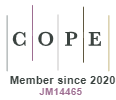The humanization of the brazilian judiciary for the practical application of ethics and justice to the concrete case
DOI:
https://doi.org/10.5585/rtj.v7i2.617Keywords:
Human Development, Justice, Ethic.Abstract
The maximum vector for the interpretation of the Federal Constitution is the dignity of the human person, so that a practical realization of fundamental and social rights embodied in articles 5 and 6 constitutes the path par excellence for human and sustainable development. It is necessary that the ideological legalistic positivism of the School of Exegesis and that has influenced many operators of the law in the contemporaneity, is deferred in the face of a humanistic methodology that in the concrete case applies an objective and constitutional axiology. In view of the serious political, economic and ethical crisis that afflicts the country, the Brazilian Judiciary is responsible for giving concrete form to the norm and for being the closest power of society must correspond to the social expectation of justice, ethics and humanization deposited in it.
Downloads
Downloads
Published
How to Cite
Issue
Section
- Abstract 533
- PDF (Português (Brasil)) 432








